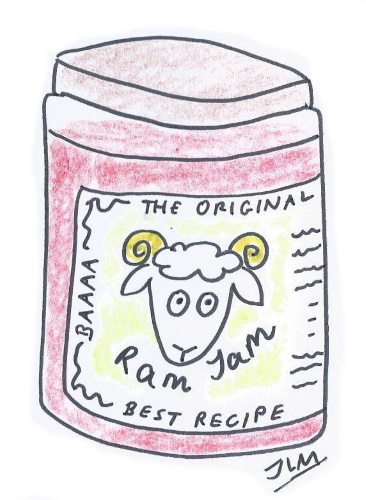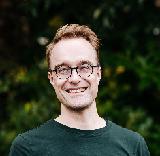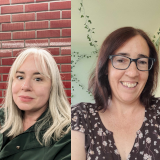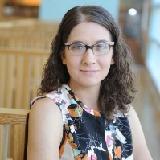Blog
Unless otherwise stated, content is shared under CC-BY-NC Licence
A perspective on need among digital preservation professionals
James Baker is Professor of Digital Humanities at the University of Southampton. His work sits at the intersection of history, cultural heritage, and digital technologies. He leads Digital Preservation Southampton, a unit that provides flexible digital preservation solutions for organisations in all sectors.
In 2023 I was lucky enough to be awarded funding by the Arts and Humanities Research Council to do something I really enjoy but rarely have enough time for: spending time with digital preservation professionals, trying to understand what they need, and considering if and in what ways I can be of use. Of course the needs of digital preservation professionals are, as is well documented, many and various.
Steps towards a definition of 'Business of Usual' for digital preservation
Jenny Mitcham is Chief Digital Preservation Officer at the Digital Preservation Coalition (DPC) and Caylin Smith is Head of Digital Preservation for Cambridge University Libraries (CUL).
The term Business as Usual (BAU) is not unique to the digital preservation community. BAU happens across sectors when projects, programmes, or other work delivered in a time-bound way become part of an organisation’s core services –or business. BAU includes activities that need to be carried out regularly with skilled members of staff, and it usually constrained by the annual or cycle-driven budgets (Roberts, 2013).
BAU is a growing topic of interest within the digital preservation community. Earlier this year, the Digital Preservation Coalition and the Digital Preservation team at Cambridge University Libraries (CUL) ran a workshop with community members to discuss what BAU means in a digital preservation context. CUL is currently transitioning deliverables from its Digital Preservation Programme to BAU and was looking for examples of successful BAU planning or input on what should be considered.
The new burning of the books in digital and ideological epistemicide: A call to action
Introduction
We are writing this article out of concern for the recent crisis facing the US Agency for International Development (USAID) and particularly the effect of the crisis on the agency’s knowledge as a global public good. In this article, we discuss the loss of USAID’s knowledge as a possible epistemicide – or destruction of knowledge systems – and what we can do as professionals in the domain of knowledge and sustainable development to mitigate this destruction by supporting our USAID colleagues and partners.
As It Was - Personal Reflections on the Mental Health and Wellbeing Survey Findings Report
In late March 2023, I wrote a blog post offering my personal reflections on the Mental Health and Wellbeing in the Digital Preservation Community Survey that we had recently launched. If you’d asked me then how long it would be until I wrote my next post, signalling the launch of the findings report, I would have guessed about 6 months. But reality has a habit of getting in the way of best-laid plans and, as I write this now, it’s almost two years later.
Digital preservation in Museums and Galleries: another year of collaboration and friendly chats
I last blogged about the DPC’s Museums and Galleries Special Interest Group in January 2024. Another year of networking and collaboration has flown by and I wanted to share with you an update about what we have been up to.
Digital preservation is digital preservation regardless of the type of organization you work in, but specific sectors can have particular challenges relating to the preservation of digital content. Museums and galleries are one such sector, and as increasing numbers of organizations of this type join the DPC, we want to ensure they have a forum to share experiences and discuss topics of interest to them. The Museums and Galleries Special Interest Group has been running for two years now and is designed to do just this.
Here is a summary of our activities over the last year, as well as our plans for 2025.
DPC Americas: the story so far...
On June 10th, 2024, I started as the Head of DPC Americas. My first six months or so have mostly been about getting a firm foundation in this role and meeting people where they are. Thanks, again, to the stakeholders who spoke with me over the summer via Zoom in informational interviews (in total 18 people at 15 member institutions).
Race report from the 'RAM Around the World' virtual relay race 2024
The Warm up
Our annual ‘RAM Jam’ sessions are always a highlight in my DPC calendar. Since we organized our very first event in 2019, these Members-only sessions have provided a small and informal forum for DPC Members to share their experiences of using our Rapid Assessment Model (DPC RAM) to drive digital preservation forward within their organizations.
This year, to celebrate 5 years of RAM, we encouraged Members to share their tips on how to make the most out of RAM – perhaps lessons learned after using RAM for 5 years, or fresh insights from those who have more recently come to use the model.
We are always looking for new ways to facilitate international dialogue, so staged this event as a ‘virtual relay race’, starting and ending in Australasia and traveling around the time zones. The key to making this format work was finding a way of passing some of the key learnings from each session forward – a kind of virtual baton gathering tips along the way. This was facilitated by the creation of a short highlights video from each DPC event host that could be played at subsequent sessions.
These short videos can be found on the event page (member login to the DPC website required to view). The sessions themselves weren’t recorded, but we’ve distilled the race highlights for you below.
An Unexpected Gift
WARNING: May Contain Excessive Whimsy.
'Twas the week before Christmas, when all through DPC,
not a keyboard was silent, mice glid furiously.
With vacation looming, much still to be done,
TODO lists to tame; once short, growing long.
Best Practices Exchange 2025: A Safe Space to Share Experiences
Kari May is the Digital Archives & Preservation Librarian for the University of Pittsburgh Library System and heads the design, development, and management of their digital preservation program. She has worked in digital preservation for 12 years and is currently a Co-Chair of the Best Practices Exchange Program Committee. Kari is also a member of the NDSA Coordinating Committee, the bloggERS Editorial Team, and SAA’s Collection Management Section Steering Committee.
I’ve been a part of the digital preservation community for nearly 13 years, and the Best Practices Exchange (BPE) was one of the first conferences I was able to attend. I quickly understood why BPE is an unconference, and I adored the benefits of this perspective. Unconference doesn’t mean unprofessional, and unconference definitely doesn’t mean uninformative. In fact, this unconference has offered a safe space that allows professionals to be unselfconscious in discussing a wide range of aspects related to managing and preserving digital content. This safe space has even made it possible for peers to discuss failures and collaborate on strategies to turn them around and sometimes into keystones for new innovations. Over the years, my experience with BPE has moved from attendee, to presenter, to Co-Chair of the 2025 Program Committee. Every step has been a pleasure and has offered new opportunities to grow.
Community (+1)
William Kilbride is the Executive Director of the Digital Preservation Coalition (DPC)
One day more. As the sun sets on the Pacific islands west of the Americas, it’s time to declare an end to World Digital Preservation Day 2024.
The idea of World Digital Preservation Day is simple – to connect and to raise awareness. Those connected themes are still true and perhaps more needed than ever before. The theme this year was ‘Preserving Our Digital Content: Celebrating Communities’. So, as well as building and strengthening the digital preservation community, it encouraged us to consider the communities in which and for whom we work. In a lovely simile, Jeanne Kraymer-Smyth has compared the digital preservation community to the Crow and the Pitcher from Aesop’s fables: that we all can all add a pebble into the pitcher of water, raising the level for each other.





















































































































































